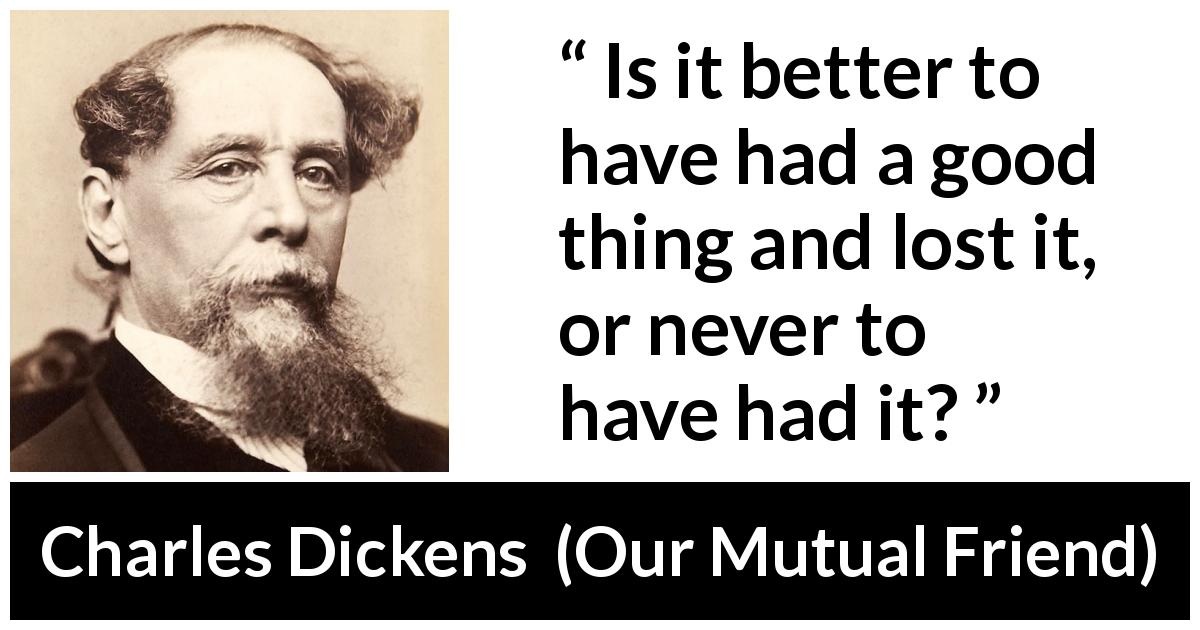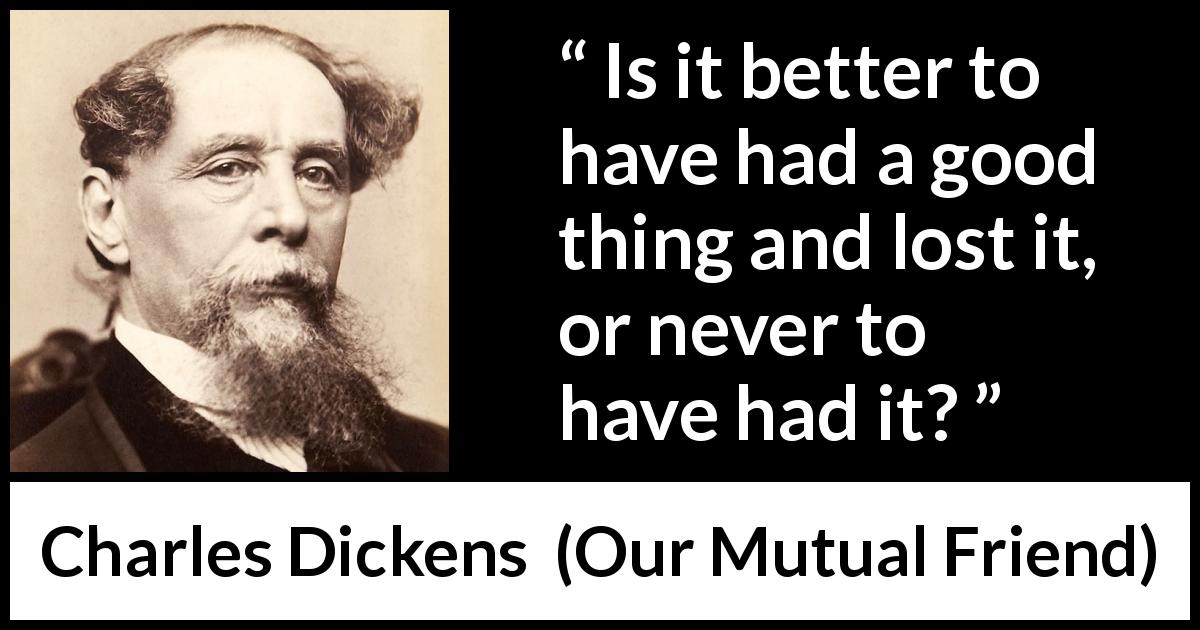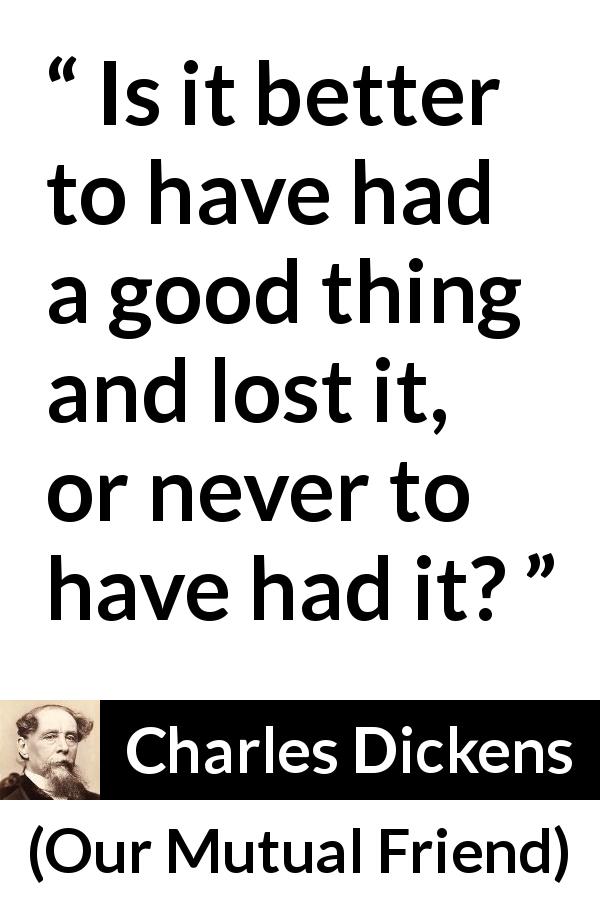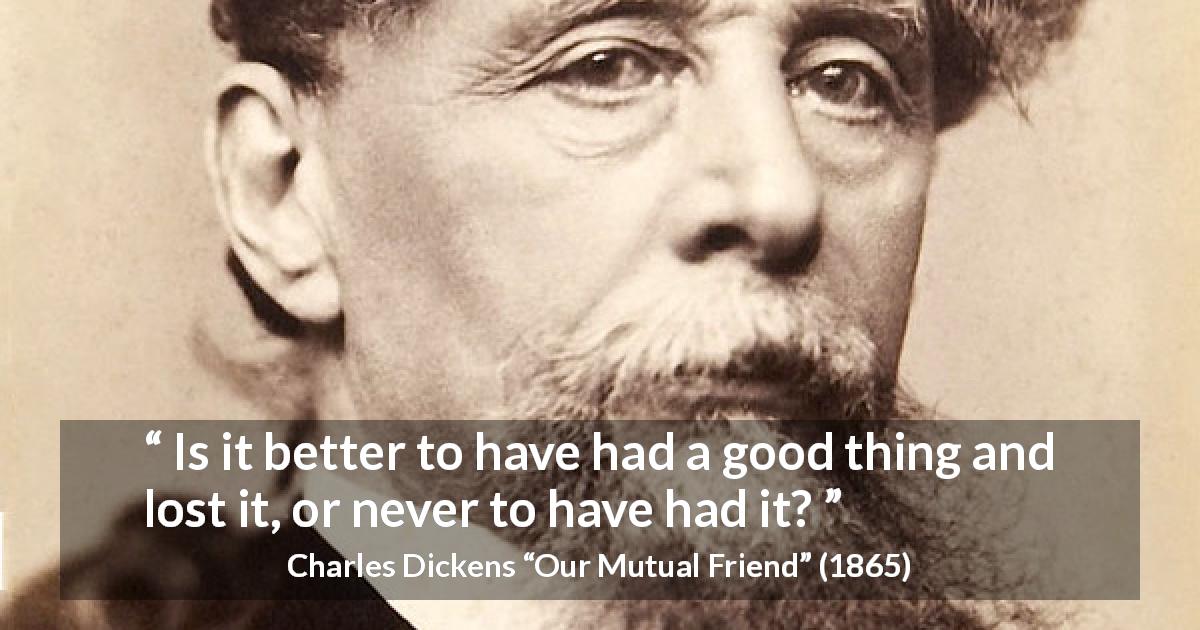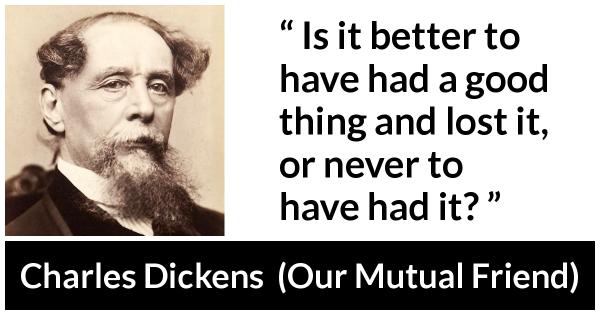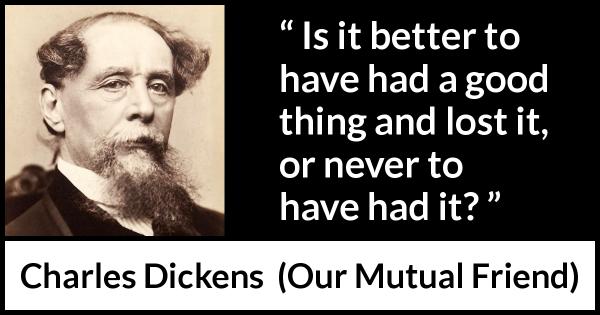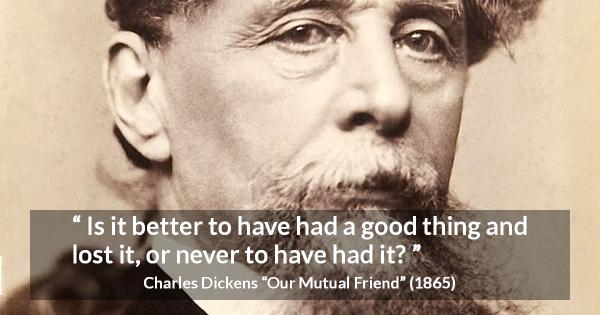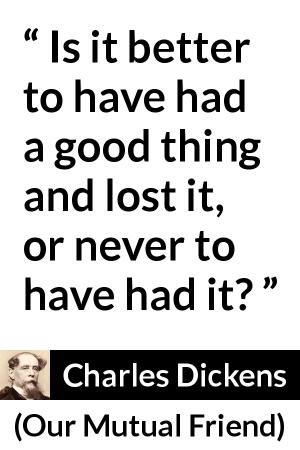“ Is it better to have had a good thing and lost it, or never to have had it? ”
Charles Dickens, Our Mutual Friend (1865). copy citation
| Author | Charles Dickens |
|---|---|
| Source | Our Mutual Friend |
| Topic | pain loss |
| Date | 1865 |
| Language | English |
| Reference | |
| Note | |
| Weblink | http://www.gutenberg.org/files/883/883-h/883-h.htm |
Context
“There was no querulous complaining in the words, but they were not the less touching for that.
'And then?'
'Yes, and then—you know, godmother. We'll both jump up into the coach and six and go to Lizzie. This reminds me, godmother, to ask you a serious question. You are as wise as wise can be (having been brought up by the fairies), and you can tell me this: Is it better to have had a good thing and lost it, or never to have had it?'
'Explain, god-daughter.'
'I feel so much more solitary and helpless without Lizzie now, than I used to feel before I knew her.' (Tears were in her eyes as she said so.)
'Some beloved companionship fades out of most lives, my dear,' said the Jew,—'that of a wife, and a fair daughter, and a son of promise, has faded out of my own life—but the happiness was.'” source
'And then?'
'Yes, and then—you know, godmother. We'll both jump up into the coach and six and go to Lizzie. This reminds me, godmother, to ask you a serious question. You are as wise as wise can be (having been brought up by the fairies), and you can tell me this: Is it better to have had a good thing and lost it, or never to have had it?'
'Explain, god-daughter.'
'I feel so much more solitary and helpless without Lizzie now, than I used to feel before I knew her.' (Tears were in her eyes as she said so.)
'Some beloved companionship fades out of most lives, my dear,' said the Jew,—'that of a wife, and a fair daughter, and a son of promise, has faded out of my own life—but the happiness was.'” source
